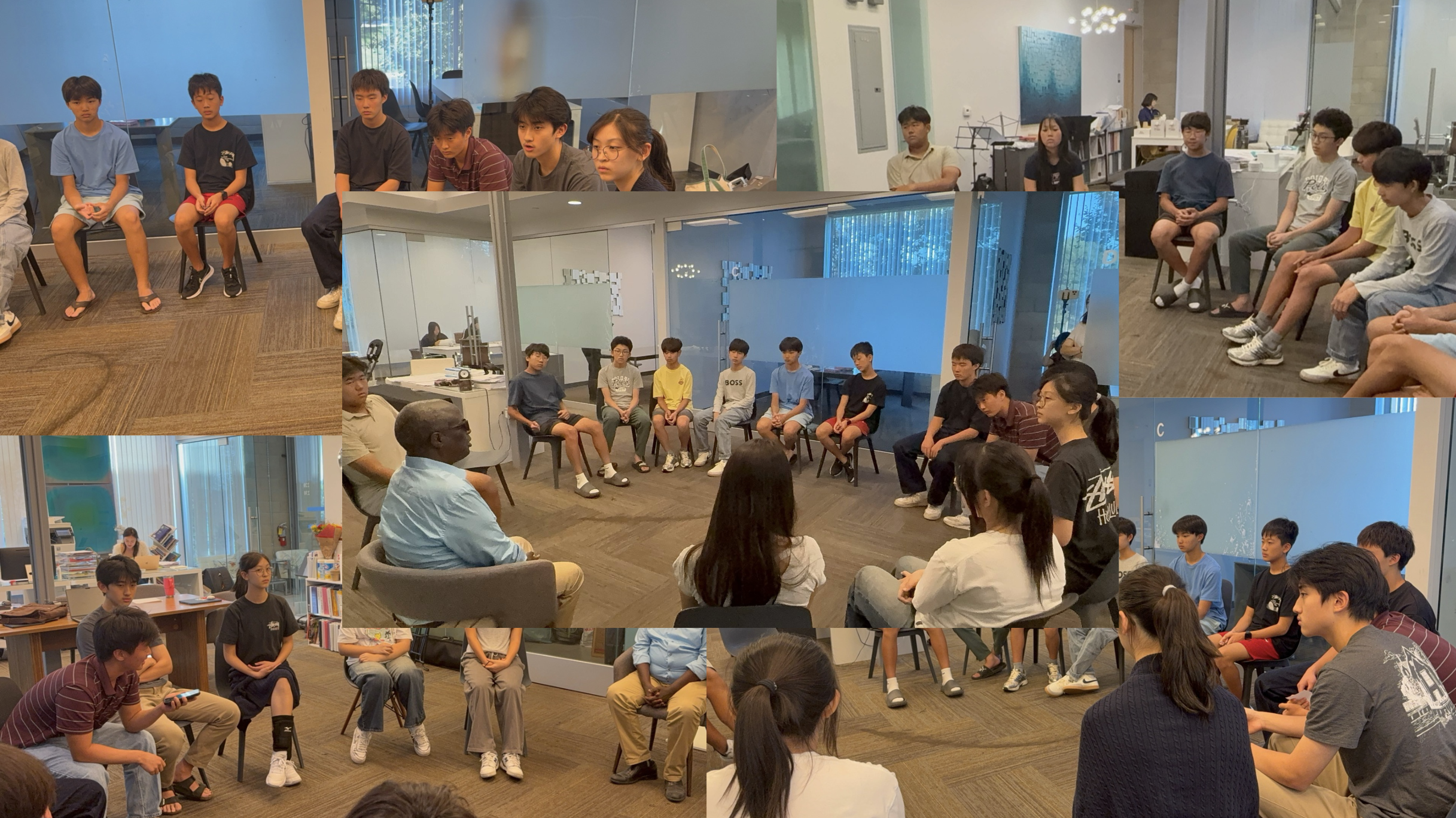The Salama School Visits the EcoEcho Foundation
By: Marvin Shim
The EcoEcho Foundation has partnered with the Salama School for the Blind in Kampala, Uganda to support the construction of a music hall at the school. To better understand the challenges the Salama School faces and how EcoEcho, and the wider community, can help the students at Salama, we spoke with Mr. Kinubi Francis, Director of the Salama School, who visited us in Irvine, California. In this conversation, he shared his experience as a teacher and director of the Salama School and his vision for the future of his students.
Key Highlights:
Kinubi Francis: I started the Salama School for the Blind in 1999 so it has been in existence for 27 years or so, and which admit and educate blind children from the age of five to sixteen. And at age 16, boys and girls [take] their primary living examination, which then takes them to secondary school for six years, after which those who pass their Advanced Certificate Exams join college or universities. Those who don't pass, we integrate them back to their community where their parents live.
Gracie Park: What does the Salama School offer as its curriculum?
Francis: We teach them English. We teach them science, mathematics, and what we call social studies or general studies, which has history, geography, and religious education and others mixed there. They have to know the world. In general studies, we teach them the different continents, we teach them the different foods and people and climate […] We also have what we call activities of their living skills, where we mainly teach them, being blind children who come from the villages and don't know what to do, how to bathe, how to wash their clothes, how to brush their teeth, how to clean the compound and where they sleep, and making their beds. The objective of introducing them to activities of living skills is to make them able to manage their own affairs independently without a lot of support. […] We also introduce them to what we call orientation and mobility. We train them to move alone from point A to point B, to avoid obstacles like trees, parked vehicles, dishes, and so on and so forth, and in doing so, we introduce them to the white cane. The child, or any blind person, should be able to maneuver to move alone using this cane.
Jay Nam: How does the school approach job readiness and careers for older students? What resources are available beyond the school itself?
Through all those subjects [aforementioned], we train the child to be able to be employed. Many of them, after leaving our school, have become musicians. That's part of preparing them to explore job opportunities in music, dance, or drama. Since they are still young, according to Uganda and our constitution, a child becomes an adult at 18 years. They leave our school at 16, and go to secondary school, where they continue developing these subjects for job opportunities.
At secondary school, they are introduced to ICT—information and technology. They are trained on how to use computers even if they are blind, including software, phones, and other devices. By the time they finish secondary school, they are well trained on how to use technology. Jobs in Uganda are not easy for the blind, but they are also not easy for sighted people. Opportunities are limited. So students must compete and show their skills. A blind person cannot expect a job just because they are blind; they must demonstrate ability.
Vincent Cho: What is an average day like for your students?
Francis: Not all 1,500 students are at Salama at once. Currently, we have 85 children on campus. Each year, 7–13 students graduate. Those who have passed through our school are out in the world, working, studying, or teaching. Some interact with me as colleagues, and it makes me happy to see them succeed.
Eric Lee: How can people help fundraise for instruments for the students at the Salama School and their other needs?
Fundraising in Uganda is not easy. You have to pray to succeed. Mainly, I write proposals. You can find me in my office late at night, writing proposals. Proposals are not easy—you never know if you will succeed. We also hold concerts and shows to explain our needs to potential donors. Visitors come to the school, and those who are kind enough provide what we need—food, medicine, and supplies. It is challenging, but these are the main approaches we use.
To View the Full Transcript: Click Here
